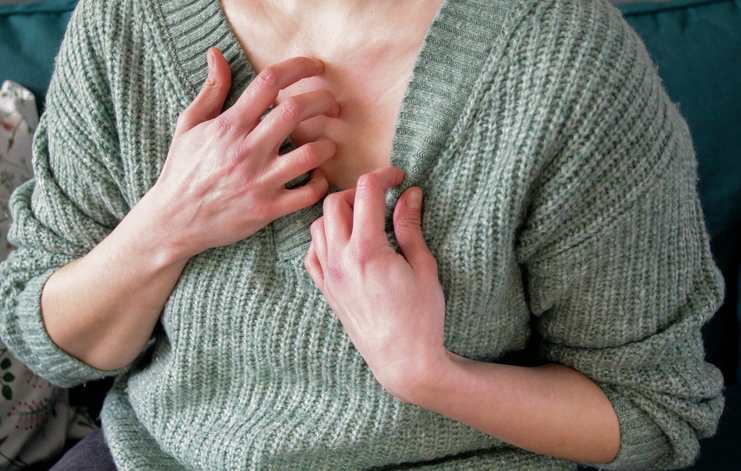Itching of the skin (pruritus or cholestatic pruritus) is one of the most common symptoms of primary biliary cholangitis (PBC), reported in 60% to 70% of people with PBC. It can have a significant effect on well-being and quality of life, leading to sleep disturbance, depression and self-isolation.
PBC is a chronic autoimmune disease predominantly found in middle-aged women that attacks the bile ducts within the liver, eventually destroying them and damaging the liver. There is no cure for PBC, but treatment can help slow disease progression and manage symptoms. In later stages of the disease, cirrhosis of the liver may occur, leading to liver failure and the need for an eventual liver transplant.
Common symptoms of PBC
Fatigue and itchy shin are the most common symptoms, but many people have no symptoms at the time of diagnosis. Some people with PBC may also experience jaundice, darkening of the skin or a lack of focus or mental clarity, also known as brain fog.
As the bile ducts start to break down, this delays the flow of bile, called cholestasis. As PBC progresses and the state of the bile ducts worsens, bile accumulates, and this is thought to be a possible cause of pruritus.
Learn more about PBC signs and symptoms
Tips for managing itching
People with PBC often experience itching on the palms, arms, legs and back. The intensity of itching can vary at different stages of the disease and ranges from mild to severe. Itching can worsen with stress, heat and contact with wool and can also be exacerbated by obeticholic acid (OHA) which is used to treat PBC.
No medications are FDA-approved for treating pruritus specifically in people with PBC. However, both European and American agencies recommend the use of cholestyramine for the first-line therapy for pruritus. It is a bile acid-binding resin that removes bile acid from the body and is commonly used to lower cholesterol. Antihistamines can also offer some relief and help with sleep – some people with PBC report itching to be worse at night. UV light therapy is a noninvasive treatment that has also produced some promising results.
Here are some additional tips that can help reduce itching:
· Use emollients, topical moisturizer and cooling agents.
· Keep fingernails short.
· Wear clothing made from cotton.
· Take cold baths.
· Avoid wool clothing.
· Avoid emotional stress.
To help manage the symptom burden of PBC and the resulting impact on quality of life, a mind-body wellness approach may also help. This involves meditation, yoga, breathwork and maintaining a healthy diet and lifestyle to reduce symptoms of anxiety and depression.

